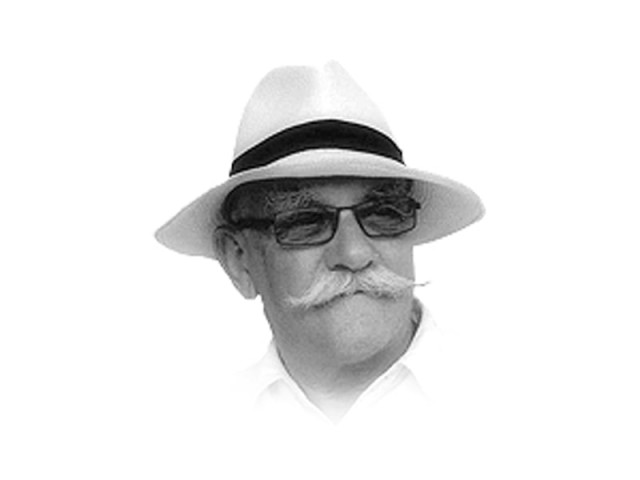Cafes, coffee and women
Why bother with a 700-word paean to coffee shops and up market eateries?

The writer is editorial consultant at The Express Tribune, news junkie, bibliophile, cat lover and occasional cyclist
There it was. Proper fish and chips and yes, peas at exactly the right level of mushiness. The chips were robust and the fish was flaky inside a crispy batter and the only fault my companion and I were able to find was that there was no malt vinegar to season this delight. Nine-point-five out of ten we decided. The proprietress was distinctly chuffed to get a well-deserved pat on the back. Cheap? Nope, but then quality never is.
Moving across town to Blue Area and the soft launch of another coffee-and-cakes joint after what I can only describe as a stunning refit and expansion. It was here that there was a sit-down with the owner and an insight into what can only be described as a cafe culture, with outdoor seating, eclectic menus and handcrafted coffee carved by local craftsmen (and women) from solid chunks of exquisite taste. These mini-temples of caffeine-chic are popping up all over the place, including in my home city of Bahawalpur which now boasts a brace of the genre.
But back to Islamabad and what is driving this phenomenon — and it is a change in the demographic and the workforce. Islamabad has been Dozeville for as long as I can remember. Terminally boring at every level. A lifeless place, bland to the point of invisibility and until fairly recently it did not even have a decent cinema ( …and yes, I do remember the late-lamented Nafdec). Populated by bureaucrats and civil servants from the outset it had little to commend it beyond an equable climate, close proximity to Murree and the Margallas skyline.
Ever so quietly all that has been changing and Mr Coffee explained why. His customers are the grown-up children, the second and third generations of the original families that came to the city. They are well educated and more importantly perhaps they are not bureaucrats or civil servants. They are employed in a range of ‘new’ industries, principally in the financial and IT sectors and earn by Pakistan standards, good money. There is a leavening of entrepreneurs and academics — in short, the emerged and expanding middle class and they like their coffee. And a lot of them are women. Women, said Mr Coffee, make up 70 per cent of his customers.
Seventy per cent? My eyebrows raised and I wanted to know how he knew. Perhaps, unsurprisingly the answer lay in Facebook and Twitter where his clientele posted their critiques and recommendations and yes, most of them were from women. Not very scientific as surveys go but it did have the ring of reality about it. Women feel safe here, said Mr Coffee. They can come alone or in groups. They bring their laptops and work here. Nobody is going to hassle them and though they might linger over a single cup for longer than is truly good business their custom is regular and yes, I do make a profit. He also serves terrific savoury sandwiches on a better-than-average brown bread.
Why bother with a 700-word paean to coffee shops and up market eateries? Because they are a barometer of social change is why. These places — businesses — would not exist were there not a market for their goods. It is not just the see-and-be-seen glitterati and fashionistas that hang out in Kohsar market with their fake handbags and sunglasses in the required position atop their immaculately coiffed heads; it is the new ordinary. Twenty years ago they were toddlers or pre-teen. Today, the future lies in a well presented cup of coffee. And mushy peas.
Published in The Express Tribune, April 28th, 2016.
Like Opinion & Editorial on Facebook, follow @ETOpEd on Twitter to receive all updates on all our daily pieces.














COMMENTS
Comments are moderated and generally will be posted if they are on-topic and not abusive.
For more information, please see our Comments FAQ